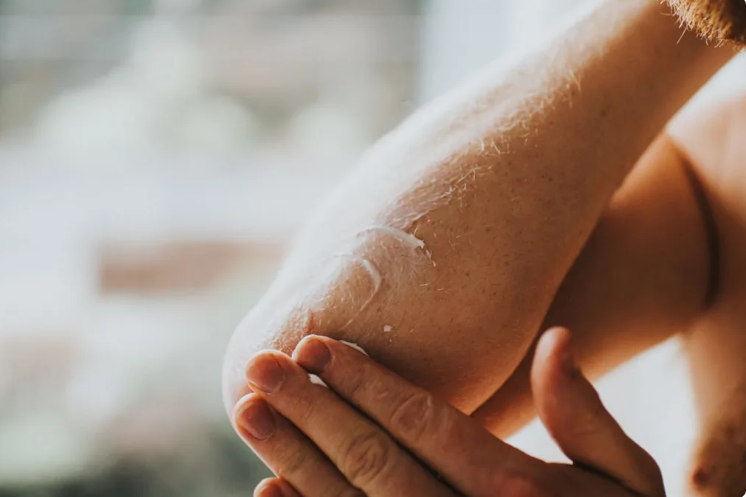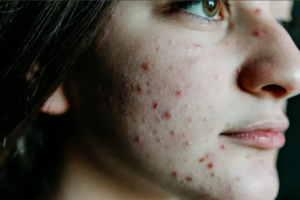Read Full Article HereWHEN YOU HAVE dry, itchy, or inflamed skin, you yearn for something soothing. A classic remedy for these problems is colloidal oatmeal. It’s gentle, calming, and provides relief.
Colloidal oatmeal is a common ingredient in lotions, creams, and other skincare products. It’s often used to treat dry skin, itchiness, bug bites, sunburns, and eczema. You might remember it from when you had chickenpox as a child—the American Academy of Dermatology recommends soaking in a colloidal oatmeal bath when you have the condition.
“Colloidal oatmeal is an easy, affordable, and natural option to soothe irritated skin,” says Peter Lio, M.D., a dermatologist and founding director of the Chicago Integrative Eczema Center.
It’s also safe to use daily to prevent dry skin, says Jennifer Holman, M.D., a dermatologist at U.S. Dermatology Partners in Tyler, Texas.
“I see many men struggle with irritation and eczema on their lower legs, especially when the air is dryer in arid climates or in the winter months when we have our heaters on,” she says. “This can almost always be prevented by daily use of an emollient containing colloidal oatmeal.”
But what exactly is colloidal oatmeal? Here’s an overview of its main benefits, how to use it, and what to do if your dry, itchy skin persists.
What is colloidal oatmeal?
COLLOIDAL OATMEAL ISN’T exactly the same as the oatmeal you eat. Instead, it’s finely ground oats, known as Avena sativa. Dr. Lio says the oats are processed in a way that enables them to be easily absorbed by the skin when mixed with water.
It’s been used for centuries to soothe and protect the skin, he adds.
Oatmeal contains fats, proteins, vitamins, minerals, and other nutrients that are good for your skin. It’s considered an emollient, which is an ingredient in skincare products that moisturizes and soothes.
In 1945, a ready-to-use colloidal oatmeal became available. The U.S. Food and Drug Administration categorizes colloidal oatmeal as a skin protectant, and the ingredient is often added to bath powders, moisturizers, shaving gels, and more.
Colloidal oatmeal is an approved treatment for conditions like eczema and minor skin irritations thanks to its anti-inflammatory, moisturizing, and soothing properties, Dr. Lio explains. The FDA actually requires that moisturizers claiming to treat eczema contain colloidal oatmeal.
The Main Benefits of Colloidal Oatmeal
COLLODIAL OATMEAL HAS anti-inflammatory and antioxidant properties that benefit the skin in a variety of ways, Dr. Lio says. Its chemical makeup has been shown to fight cytokines, which are proteins that trigger inflammation in the body.
mid adult man scratching his skin while sitting in an armchair at home
urbazon – Getty Images
Antioxidants have anti-aging and disease-fighting abilities and target free radicals, which can harm the body via oxidative stress. Oxidative stress is connected to cancer, diabetes, heart disease, and some skin diseases, including dermatitis.“Antioxidants help the skin respond to outside irritants or injuries,” Dr. Holman says. “Our skin barrier is what defends us from the outside world, and colloidal oatmeal strengthens this barrier through its emollient properties.”
Research published in 2020 in the Journal of Drugs in Dermatology found that a 1% colloidal oatmeal eczema cream improved the skin’s microbiome composition by decreasing certain bacteria on the surface of the skin. Dr. Holman says this staphylococcus bacteria is the most common cause of infection in patients with atopic dermatitis (also known as eczema).
The study also found that colloidal oatmeal cream improved skin pH, skin barrier function, and skin hydration.
It’s believed that colloidal oatmeal works by forming a protective barrier on the skin, locking in moisture and preventing water loss, Dr. Lio says. It’s been shown to soothe irritation and burns and minimize redness and itching.
A 2015 study showed that colloidal oatmeal’s antioxidant and anti-inflammatory properties improved skin dryness, scaling, roughness, and itching. Other research shows that it can minimize the symptoms of hand eczema and lead to fewer eczema flare-ups.
How to Use Colloidal Oatmeal
FROM BATH TREATMENTS to body washes to creams and lotions, colloidal oatmeal is available in a variety of products.
Dr. Holman typically recommends that patients with eczema or skin irritation use a moisturizer with colloidal oatmeal every day after showering as a preventive measure. Even if you don’t have these problems, using a colloidal oatmeal moisturizer daily can prevent dry skin.
She says colloidal oatmeal baths are helpful for soothing irritated, itchy, or tender skin, such as that caused by sunburn, shingles, or poison ivy.
“The best option depends on what you’re treating: baths are great for larger areas, while creams and lotions are perfect for targeted relief,” Dr. Lio says.
Is colloidal oatmeal safe?
COLLOIDAL OATMEAL IS safe and well-tolerated for most people, even if you have sensitive skin, Dr. Lio says. Anyone with an oat allergy should avoid it, though.
There’s also the potential that people with celiac disease may be sensitive to the avenin protein in colloidal oatmeal, and it could cause a rash or an itch for these individuals, Dr. Holman says.
If you ever develop an irritation after using colloidal oatmeal, stop and talk to a dermatologist, Dr. Lio adds.
When to See a Doctor About Your Skin Problems
DR. HOLMAN SAYS colloidal oatmeal is best for mild skin problems and to prevent skin issues, such as dryness or irritation.
If you’ve been using it to treat rashes, burns, bug bites, or other issues for a few days without improvement or things are getting worse, Dr. Lio recommends seeing a doctor.
Oozing, crusting, pain, or severe redness are other reasons to get checked out, as these symptoms could signal an infection or more serious skin condition, he says.
How Can Colloidal Oatmeal Help Your Skin?
October 17, 2024








